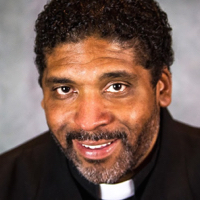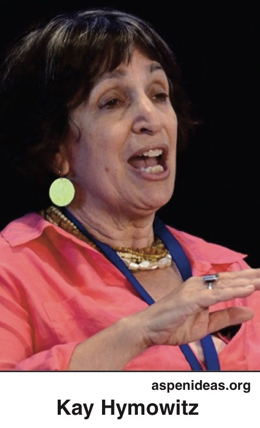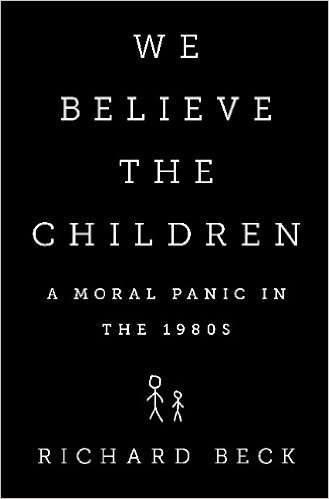Rascals case in brief
In the beginning, in 1989, more than 90 children at the Little Rascals Day Care Center in Edenton, North Carolina, accused a total of 20 adults with 429 instances of sexual abuse over a three-year period. It may have all begun with one parent’s complaint about punishment given her child.
Among the alleged perpetrators: the sheriff and mayor. But prosecutors would charge only Robin Byrum, Darlene Harris, Elizabeth “Betsy” Kelly, Robert “Bob” Kelly, Willard Scott Privott, Shelley Stone and Dawn Wilson – the Edenton 7.
Along with sodomy and beatings, allegations included a baby killed with a handgun, a child being hung upside down from a tree and being set on fire and countless other fantastic incidents involving spaceships, hot air balloons, pirate ships and trained sharks.
By the time prosecutors dropped the last charges in 1997, Little Rascals had become North Carolina’s longest and most costly criminal trial. Prosecutors kept defendants jailed in hopes at least one would turn against their supposed co-conspirators. Remarkably, none did. Another shameful record: Five defendants had to wait longer to face their accusers in court than anyone else in North Carolina history.
Between 1991 and 1997, Ofra Bikel produced three extraordinary episodes on the Little Rascals case for the PBS series “Frontline.” Although “Innocence Lost” did not deter prosecutors, it exposed their tactics and fostered nationwide skepticism and dismay.
With each passing year, the absurdity of the Little Rascals charges has become more obvious. But no admission of error has ever come from prosecutors, police, interviewers or parents. This site is devoted to the issues raised by this case.
On Facebook
Click for earlier Facebook posts archived on this site
Click to go to
Today’s random selection from the Little Rascals Day Care archives….
Click for earlier Facebook posts archived on this site
Click to go to
Today’s random selection from the Little Rascals Day Care archives….
Which candidate cares about wrongful convictions?

naacpnc.org
Rev. William Barber
April 8, 2016
“North Carolina’s attorney general (Roy Cooper) should set up a group to investigate claims of wrongful convictions to prevent more innocent people from being in prison, the head of the state NAACP said Thursday.
“The Rev. William Barber also called on Gov. Pat McCrory to establish a task force to recommend ways to strengthen protections against wrongful convictions….”
“Cooper’s office said a meeting was held with Barber and representatives of the NAACP: ‘We look forward to working with them to address systemic issues in the criminal justice system.” Cooper also wants more money for N.C. Innocence Inquiry Commission, which has been involved in releasing eight innocent men.
“McCrory’s office didn’t… respond to Barber’s comments….”
– From “NAACP: Attorney General should review wrongful convictions” by Martha Waggoner of the Associated Press (March 24) (text cache)
The latest addition to the long list of questionable North Carolina convictions comes from Gaston County (thank you, Elizabeth Leland of the Charlotte Observer). Least surprising sentence in Leland’s series: “The prosecutors who tried the case declined to be interviewed.”
![]()
Of mice and memory and the moral panic
July 29, 2013
“Scientists at the Massachusetts Institute of Technology have developed the ability to implant mice with false memories. The memories can be easily induced and are just as strong as real memories, physiological proof of something psychologists and lawyers have known for years.
“The findings are a serious matter. According to the Innocence Project, eyewitness testimony played a role in 75 percent of guilty verdicts eventually overturned by DNA testing after people spent years in prison. Some prisoners may even have been executed due to false eyewitness testimony. It was not because the witnesses were lying. They were just wrong, said Susumu Tonegawa, a molecular biologist and the lead author in the MIT study.
“In the longest criminal trial in American history, the McMartin family, who operated a preschool in California, was charged with multiple incidents of child abuse. After seven years and $15 million in prosecution expenses, some charges were dropped and the defendants were acquitted of others when it became clear some of the accusations were based on false memories, some possibly planted by childrens’ therapists.”
– From “Scientists Produce False Memories In Mice” by Joel N. Shurkin, Inside Science News Service (July 25, 2013)
The same day’s Guardian of London adds this response from Chris French, head of the Anomalistic Psychology Research Unit at Goldsmiths, University of London:
“Memory… is a reconstructive process which involves building a specific memory from fragments of real memory traces of the original event but also possibly including information from other sources.”
“Information from other sources” – that is, from prosecution therapists – was what contaminated the memories of child witnesses in cases such as McMartin and Little Rascals.
‘Antifeminism’ to blame? Not so fast, Mr. Beck
 Aug. 24, 2015
Aug. 24, 2015
“(Richard) Beck is generally restrained in his narrative, letting the details pile up to a well-deserved indictment of the many players in the ‘moral panic.’ But in explaining how these fever dreams managed to seize the national imagination, he does a little witch-hunting of his own. The frenzy, he tells us, was a backlash by family-values conservatives to the social changes around them. It was a period of ‘an intense reactionary antifeminism.’
“This is an inexcusably partial interpretation. From Beck’s own evidence, feminists themselves were vital players in the hysteria. Gloria Steinem donated money to the McMartin investigation, and Ms. Magazine ran a 1993 cover article ‘BELIEVE IT! Cult Ritual Abuse Exists,’ even though, by that time, the general public had grown increasingly skeptical of the idea.
“In part because of her aggressive pursuit of child abusers – and conviction of a number of people later exonerated – a relatively unknown Dade County state attorney named Janet Reno was picked by President Clinton to become the nation’s first female attorney general. According to Debbie Nathan and Michael Snedeker, the authors of ‘Satan’s Silence,’ (Kee) MacFarlane had been a lobbyist for NOW before she set about terrifying the children of Manhattan Beach.
“With his partisan recounting of the child abuse panic of the 1980s, Beck turns what could have been a careful history about one facet of the nation’s exhausting culture wars into one more illustration of them.”
– From “ ‘We Believe the Children,’ by Richard Beck” by Kay Hymowitz in the New York Times Sunday Book Review (Aug. 21, 2015)
I’m posting this criticism of Beck’s book – from an otherwise laudatory review – mostly for archival purposes. My own interest lies less in the tangled roots of the day-care panic than in its results: defendants wrongfully incarcerated, children profoundly misguided and therapists and prosecutors unjustly unscathed.
At last, book lays bare ‘satanic ritual abuse’ era
 Aug. 10, 2015
Aug. 10, 2015
Since I undertook this blog in 2011, I’ve been waiting for a mass-market book that recalls the “satanic ritual abuse” day-care era with authority, insight and thoroughness.
“We Believe the Children: A Moral Panic in the 1980s” comes pretty darn close to meeting that standard. (I do wish author Richard Beck had addressed the significant post-panic contributions of Richard Noll and Allen Frances.)
I’ll be posting excerpts from the book and later an interview with Beck.
Meanwhile, I’ve been pleased to see the reviews in the news media – so far, all largely appreciative.
“…This book does a devil of a job correcting… all the lies and self-deceptions, so credulously believed in the 1980s….”
– From “Child Abuse Cases Endure as Lessons in Hysteria” by Mark Oppenheimer in The New York Times (Aug. 6)
“ ‘We Believe the Children’ should serve to remind us of the dangers of the ‘we must believe the victim’ mindset in the case of any criminal offense. A faith-based pursuit of justice can lead to a miscarriage of justice.”
– From “What Fueled the Child Sex Abuse Scandal That Never Was?” by Lizzie Crocker at the Daily Beast (Aug. 3)
“ ‘We Believe the Children’ reveals the various combinations of ignorance, venality, arrogance and zealotry that characterized the major players who fueled the moral panic.”
– From “A Very Model Moral Panic” by Carol Tavris in the Wall Street Journal (Aug. 7)
Here also is a radio interview with Beck and – inevitably – a response from witch-hunt denier Ross Cheit.











0 CommentsComment on Facebook